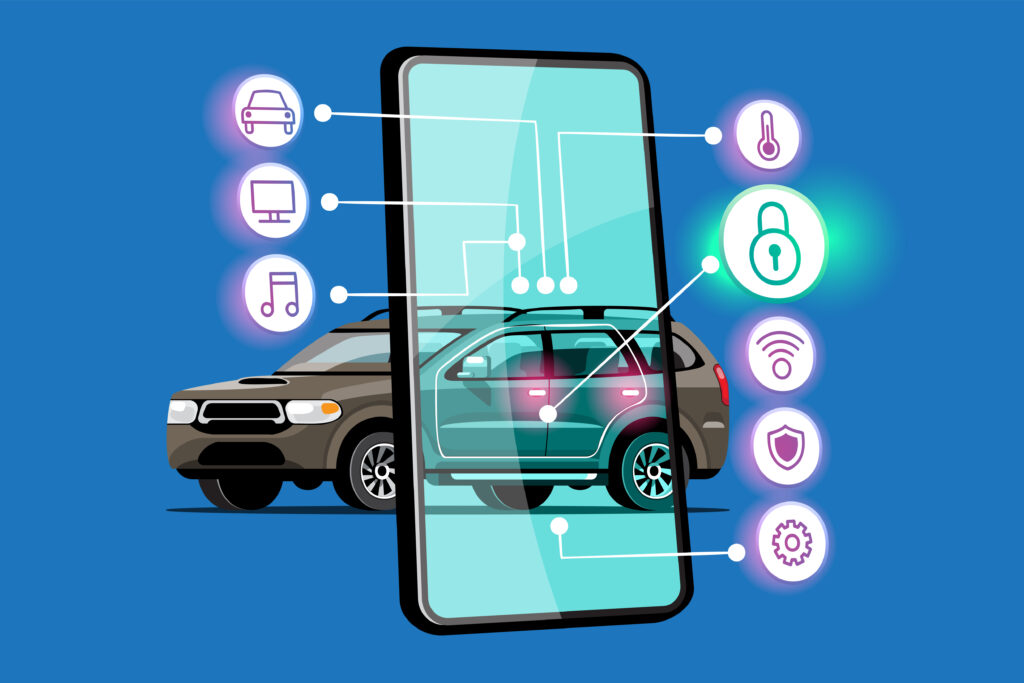Currently, the automotive industry is experiencing a major transformation as a result of automation, which is increasing efficiency, safety, and innovation. Essentially, this shift has impacted the way vehicles are being manufactured, maintained, and operated.
As we move forward, we will explore the varying effects of automation on the automotive industry.
Changing Trends in Automotive Automation
When it comes to using new technologies, especially automation, the automotive industry has always been at the forefront. With the advent of the assembly line in the early 1900s, automation played an important role in reducing costs and improving production efficiency. These days, almost half of the industrial robots sold in North America are used in the automotive sector, showing just how much of a leader it is in the robotics space.
The key technologies that drive automation
➔A robot and a cobot
The tech behind robots has come a long way, and now they can handle complex tasks like welding, painting, and assembling things even better than humans.
These robots, known as cobots, are built to team up with people in factories. This partnership makes operations more flexible and boosts safety on the job.
➔ AI (Artificial Intelligence)
AI technologies are super important for making manufacturing processes better by looking at real-time data from production lines and vehicles.
This helps companies figure out when they need maintenance, make their supply chains smoother, and improve quality control. In the end, using AI in manufacturing means everything runs more efficiently and performance gets a nice boost.
➔ IoT (Internet of Things)
IoT devices let you keep an eye on machines and workflows in real-time, making it easier to keep everything running smoothly and cut down on surprise breakdowns.
This kind of connectivity really boosts productivity across the manufacturing process.
The impact on manufacturing processes
➔ Increased efficiency and productivity
Using automation in car manufacturing really boosts efficiency. Robots can work around the clock without getting tired, so production times get shorter and output goes up.
Take Ford’s Chicago plant, for example—over 500 robots are busy doing different jobs there, which has increased their production by 25% and cut labor costs by 20%.
➔ Reduced costs
Using automation technology lets manufacturers save on labor costs by cutting out the need for humans to do repetitive tasks. Automated systems can handle important jobs like welding and assembly way more efficiently than people can.
A great example of this is the Tesla factory, which uses advanced robots to lower production costs for each unit while still keeping the quality high.
➔ Quality Control Improved
Using automated processes in manufacturing really helps improve product quality by keeping things precise. Robotic systems can handle thousands of tasks each day with very few mistakes, which cuts down on defects a lot more than traditional manual methods.
When customer satisfaction goes up, it not only enhances the brand’s reputation but also boosts how happy customers feel overall.
➔ Improved safety
Automating risky tasks that could harm workers helps make the workplace safer. For example, when things like welding and painting are done by machines instead of people, it really cuts down on injuries and creates a more secure environment for everyone.
The transformation of customer experience
Autonomous vehicles
The technology behind smart vehicles has really changed the game, improving everything from manufacturing to customer experience. Artificial intelligence-powered systems enable real-time monitoring and diagnostics, enabling us to detect maintenance issues before they cause a problem, thereby improving vehicle reliability. With the advancement of these technologies, we are seeing cool new features that enhance safety and make life easier.
Producing electric vehicles
Automation is becoming more and more important as electric vehicles (EVs) take over the automotive industry. The robots can be customized to fit the specific needs of EV production, which simplifies the switch from traditional combustion engines to electric engines. Therefore, manufacturers have to maintain competitiveness in a market that puts a lot of emphasis on sustainability.
Issues to consider and challenges to overcome
There are many benefits to automation, but it also presents challenges that must be addressed carefully:
➔ Employee Displacement
As electric vehicles (EVs) take over, automation is becoming more important. It’s easier to switch from combustion engines to electric ones when robots are tailored to fit their specific needs. To remain competitive in an environmentally friendly market, manufacturers must be adaptable to remain competitive.
➔ The initial investment costs
As a smaller manufacturer, jumping into advanced automation technology can be a challenging decision due to the high upfront costs. However, the initial expenses can ultimately result in increased efficiency and lower labor costs over time.
➔ Reliance on technology
For small manufacturers, jumping into advanced automation technology can be a tough call because of the high upfront costs involved. In the long run, these initial expenses can actually pay for themselves through a higher level of efficiency and lower labor costs.
Key Thoughts
Automation is really changing the game in the automotive industry. With automated systems, companies are innovating more, boosting efficiency, cutting costs, and making things safer. These technologies are not just transforming how manufacturers operate; they are also changing the way people get around all over the world.
Even with the challenges in this changing world, the upsides are way more substantial. They are setting up the automotive industry for steady growth as we move into a more automated future.
How do you think automation will shape the future of driving and car manufacturing? Share your thoughts below!
FAQs About Automation in the Automotive Industry
What is automation in the automotive industry?
In the automotive sector, automation refers to the application of cutting-edge technology like robotics, artificial intelligence (AI), and machine learning to optimize production and operational spectrum efficiency, improve vehicle functionality, and expedite manufacturing processes.
What are some examples of automation in vehicles?
Vehicle automation includes functions such as adaptive cruise control, automatic parking, lane-keeping assistance, advanced driver assistance systems (ADAS), and autonomous driving systems.
How does automation benefit automotive companies?
Automation enables businesses to lower labor costs, maximize resource utilization, enhance manufacturing safety, and create high-quality automobiles more quickly. Innovation in car design and technology is also made possible by it.



